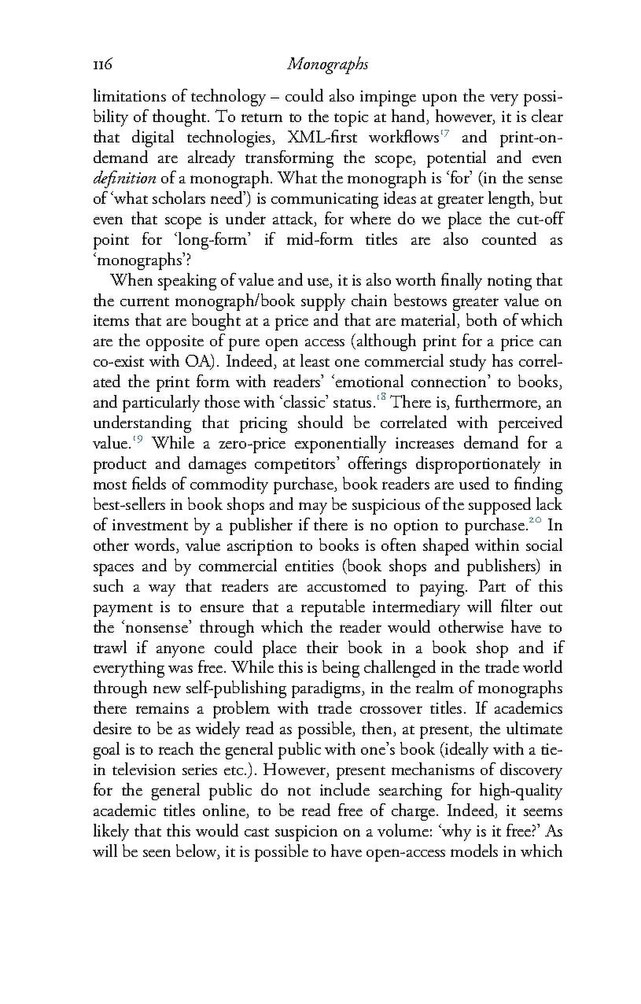limitations of technology – could also impinge upon the very possibility of thought. To return to the topic at hand, however, it is clear that digital technologies, XML-first workflows17 and print-on-demand are already transforming the scope, potential and even definition of a monograph. What the monograph is ‘for’ (in the sense of ‘what scholars need’) is communicating ideas at greater length, but even that scope is under attack, for where do we place the cut-off point for ‘long-form’ if mid-form titles are also counted as ‘monographs’?
When speaking of value and use, it is also worth finally noting that the current monograph/book supply chain bestows greater value on items that are bought at a price and that are material, both of which are the opposite of pure open access (although print for a price can co-exist with OA). Indeed, at least one commercial study has correlated the print form with readers’ ‘emotional connection’ to books, and particularly those with ‘classic’ status.18 There is, furthermore, an understanding that pricing should be correlated with perceived value.19 While a zero-price exponentially increases demand for a product and damages competitors’ offerings disproportionately in most fields of commodity purchase, book readers are used to finding best-sellers in book shops and may be suspicious of the supposed lack of investment by a publisher if there is no option to purchase.20 In other words, value ascription to books is often shaped within social spaces and by commercial entities (book shops and publishers) in such a way that readers are accustomed to paying. Part of this payment is to ensure that a reputable intermediary will filter out the ‘nonsense’ through which the reader would otherwise have to trawl if anyone could place their book in a book shop and if everything was free. While this is being challenged in the trade world through new self-publishing paradigms, in the realm of monographs there remains a problem with trade crossover titles. If academics desire to be as widely read as possible, then, at present, the ultimate goal is to reach the general public with one’s book (ideally with a tiein television series etc.). However, present mechanisms of discovery for the general public do not include searching for high-quality academic titles online, to be read free of charge. Indeed, it seems likely that this would cast suspicion on a volume: ‘why is it free?’ As will be seen below, it is possible to have open-access models in which
